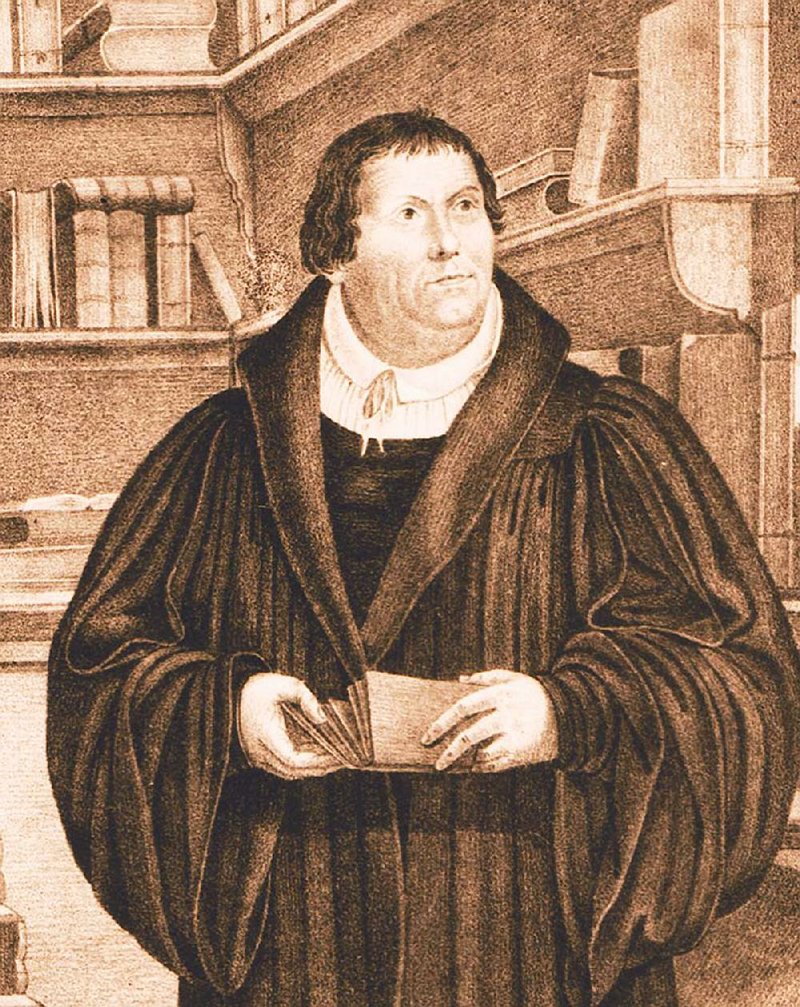PITTSBURGH -- Whatever you've seen in the movies and in photographs, Martin Luther probably didn't nail his "95 Theses" onto a church door in Wittenberg, Germany.
What he certainly did on Oct. 31, 1517, was put the document in the mail, and the rest is history. His theses -- the tentative first salvos in what became a broad challenge to Catholic teaching, authority and practice -- ignited the Protestant Reformation, which split Western Christianity and created the Lutheran and myriad other denominations.
But in recent decades, relations have warmed between Catholics and the majority of Lutheran denominations.
In the first meeting of its type in the nation last week, more than 100 Catholics and Lutherans from southwestern Pennsylvania gathered at St. Paul Seminary in Pittsburgh to talk about how to commemorate the forthcoming 500th anniversary of the Reformation in 2017.
"Although we cannot change history, we can determine how we tell the story," said Bishop Kurt Kusserow, head of the Southwestern Pennsylvania Synod of the Evangelical Lutheran Church in America (ELCA). "One of the ways we are determined to tell that story is to begin with the point of unity."
That unity might have shocked past generations, said the Rev. John Crossin, one of the speakers and the director of the U.S. Catholic bishops' office for relations with other churches and religions. He said that when he was growing up in Philadelphia in the 1950s alongside Protestants, "we played basketball together but never visited each other's churches."
Yet here were Lutherans, many of them women in clerical collars, gathering in halls adorned with portraits of popes and bishops, chatting amiably with Catholic priests and others. In addition to the Lutheran synod, which has about 70,000 members in 10 counties, the event was co-sponsored by local Catholic dioceses with more than 800,000 combined members.
The participants were the first in the country to use a new study guide -- prepared by Pittsburgh-area Catholics and Lutherans for national distribution -- on how to prepare for the 500th anniversary, said Bishop Donald McCoid, head of the ELCA's national office on ecumenical and inter-religious relations.
The study guide is in turn based on a joint Catholic-Lutheran publication, "From Conflict to Communion," that seeks to move from a "history marked by conflict to a present and future marked by deeper communion," said McCoid, bishop emeritus of the Southwestern Pennsylvania Synod.
Many things people think they know about the Reformation -- such as the image of Luther as the "angry young man, hammer in hand" -- need a second look, said the Rev. Timothy Wengert, an emeritus professor of Christian history at Lutheran Theological Seminary of Philadelphia.
For example, many still don't know that Catholics and the main-branch Lutherans have largely buried the hammer, er, hatchet on one of the key issues that drove them apart.
The Lutheran World Federation -- which includes the ELCA -- and the Catholic Church said in a 1999 document that, although they don't entirely agree on "justification," or how God saves people from their sins, those differences are no longer occasions for mutual condemnation.
"Along with the fall of the Berlin Wall, these are things I thought would never happen," Wengert said.
New hurdles have arisen, speakers acknowledged, such as the ELCA's ordination of women and, more recently, openly gay clergy. But they said recent history offers encouraging hope for overcoming huge obstacles.
And not all Lutherans have signed on. The Lutheran Church-Missouri Synod, the nation's second-largest Lutheran denomination, said the 1999 document failed to settle the dispute on justification. More recently, the ELCA has split over issues such as sexuality, although one new denomination, the North American Lutheran Church, has pledged to pursue dialogue with Catholic and other churches.
But for many, the biggest challenge to Lutherans and Catholics cooperating is complacency among a rank and file that knows little about church history or what the fuss was all about.
"Maybe we need sometimes to point out the differences to find out they aren't really different," said Sister Nancy Barshick, a volunteer at St. Oliver Plunkett Church.
The Rev. Peter Asplin, pastor of Bethlehem Evangelical Lutheran Church in Scenery Hill, said local Lutherans, Catholics and others have found unity by organizing a clothing distribution program for the needy.
"We don't encounter each other theologically, but we do in service," he said.
Religion on 05/09/2015
